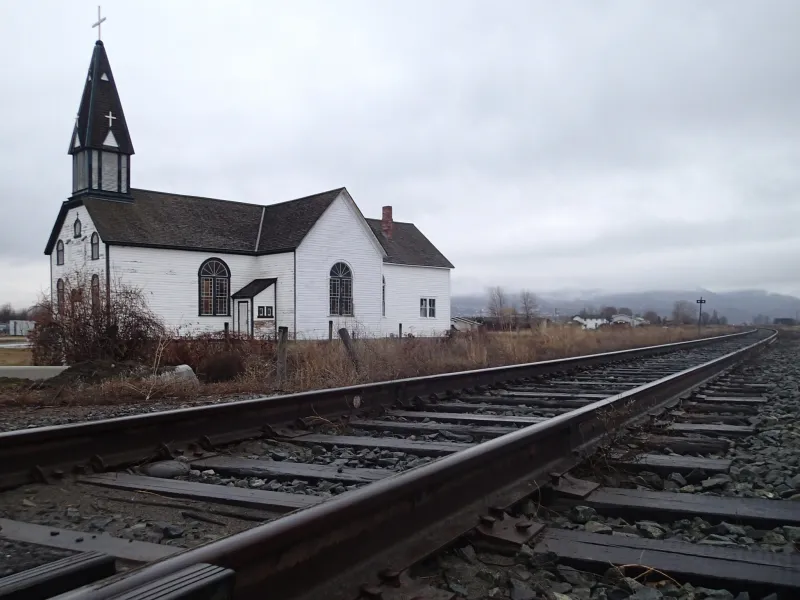 Canadian Prime Minister Justin Trudeau and other government officials held bilateral meetings with Pope Francis and Cardinal Pietro Parolin on July 27, 2022, during the pope’s trip to that country. / Credit: pool VAMP
Canadian Prime Minister Justin Trudeau and other government officials held bilateral meetings with Pope Francis and Cardinal Pietro Parolin on July 27, 2022, during the pope’s trip to that country. / Credit: pool VAMP
Denver Newsroom, Oct 27, 2022 / 19:00 pm (CNA).
The Catholic population in Canada has declined by almost 2 million people in the last 10 years, the Canadian census has found in a report that indicates the religiously unaffiliated now outnumber Catholics.
The latest census figures, compiled in 2021, show the Catholic Canadian population has declined to 10.9 million. Catholics now make up about 29.9% of the country’s people. According to the 2011 census, the Catholic population that year was 12.8 million.
Just 53.3% of Canadians, 19.3 million people, now identify as Christian, a decline from 67.3% in 2011 and 77.1% in 2001. Statistics Canada, Canada’s national statistical office, presented the latest figures in an Oct. 26 report.
Catholicism is still the most popular religious affiliation in all provinces and territories except for Nunavut, the sparse population of which has a large Anglican component.
Quebec is the only majority Catholic province, but Catholic numbers declined “considerably,” Statistics Canada said. In 2011, 74.7% of Quebec residents reported that they were Catholic. The 2021 figures indicate 53.8% of Quebec residents identified as Catholic.
CNA contacted the Canadian Conference of Catholic Bishops and the Archdiocese of Quebec for comment but did not receive a response by publication.
Among other Christian identities in Canada, the most numerous are the 7.6% of Canadians who identify as Christian without specifying a denomination. This is double the proportion from 2011.
About 3% of Canadians are adherents to the United Church of Canada, a mainline ecclesial community, and another 3% belong to the Anglican Church. Orthodox Christians, Baptists, and Pentecostal and other Charismatic Christians make up the remainder.
Among Christians, only the Orthodox Christian population and the non-specific Christian population grew in the last decade.
Religious practice has also declined. A separate Canada Statistics summary, released in October 2021, said that in 2019 only about 20% of Canadians attended group religious activities at least monthly. This compares to 40% of Canadians who reported the same in 1985. Women were more likely than men to declare a religious affiliation, as were people born in older generations.
The religiously unaffiliated now make up 34.6% of the Canadian population, according to Statistics Canada’s latest report.
Some regions are less affiliated than others. Almost 60% of the people in Yukon are religiously unaffiliated, as are 52% of those in British Columbia.
Non-Christian religious adherents make up 12.1% of Canada’s population.
About 5% of Canadians are Muslim. Their population has doubled in size since 2011. About 2.3% of Canadians are Hindu and 2.1% are Sikh. The Jewish population numbers about 335,000, a slight increase over the last decade, but their proportion of Canadians has declined to 0.9%. They are slightly outnumbered by self-identified Buddhists.
Non-Christian religious adherents disproportionately live in large urban centers and their numbers have increased largely due to immigration. They make up 16.3% of the population in Ontario, with Muslims and Hindus the most populous. About 16.7% of British Columbia residents adhere to non-Christian religions and Canada’s Sikhs have their largest presence there.
Canada’s 1.8-million indigenous people are largely unaffiliated, with 47% reporting no affiliation. About 26.9% identified as Catholic. Only 81,000 people overall, about 0.2 percent of the total Canadian population, reported adhering to a traditional Indigenous spirituality.
Catholic involvement with government-subsidized residential schools for Indigenous Canadians has come under scrutiny in recent decades because of these schools’ efforts to eradicate indigenous culture and assimilate children to the dominant culture. Many of the schools were poorly run and poorly funded, while staff could be negligent or even abusive towards children. Thousands of children died of injury, neglect or diseases like tuberculosis, often at a rate far higher than other children in Canada.
In 2021, reports suggested there were several hundred unmarked graves at two former residential schools. Though the suspected graves have not been exhumed, the reports led to a wave of protests and burnings and vandalism of churches, including churches that still serve Indigenous communities.
The number of hate-based incidents targeting Catholics increased by more than 260% between 2020 and 2021, according to crime figures from Statistics Canada.
Pope Francis visited Canada in 2022 to apologize for Catholics’ role in the residential schools.
In addition to abuse scandals, Canadian law and culture continue to diverge from Catholic belief on abortion, euthanasia, and LGBT issues. There are also disputes over the identity and effectiveness of Catholic schools, some of which are state-funded but supervised by elected lay Catholics, not Church officials. These could be other factors in the decline of Catholic numbers in Canada.
[…]






